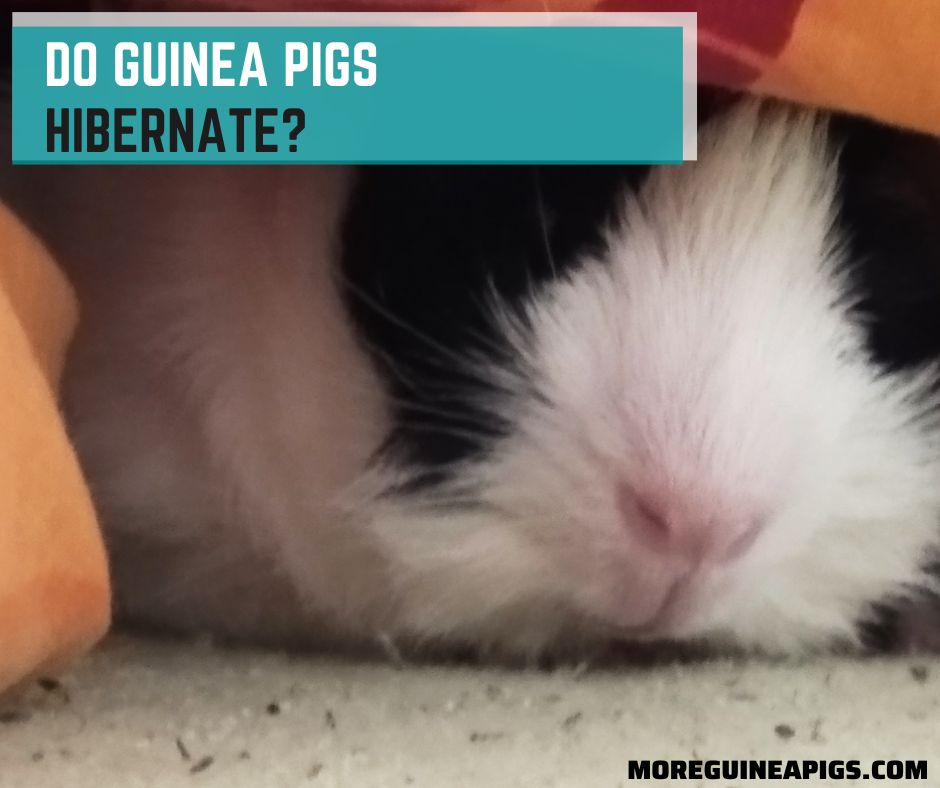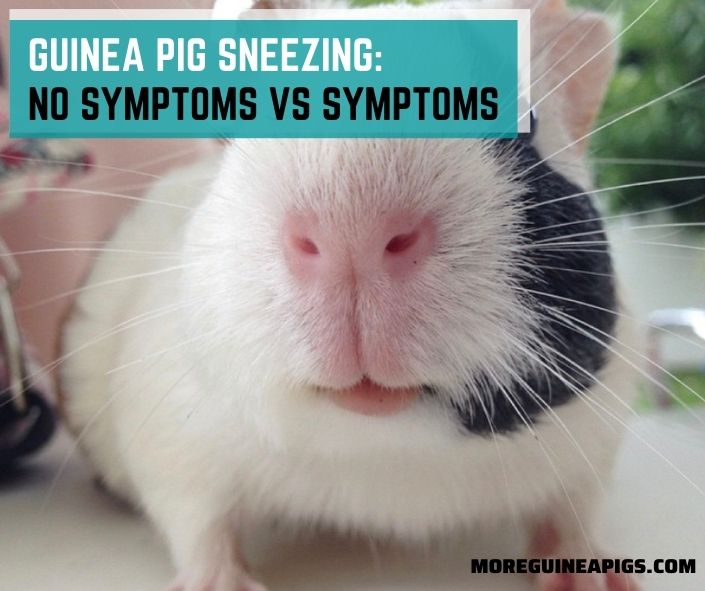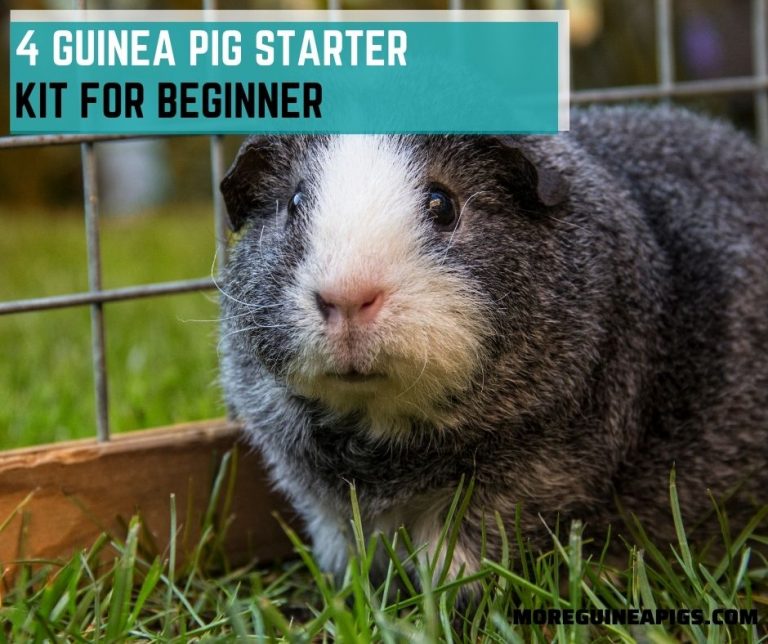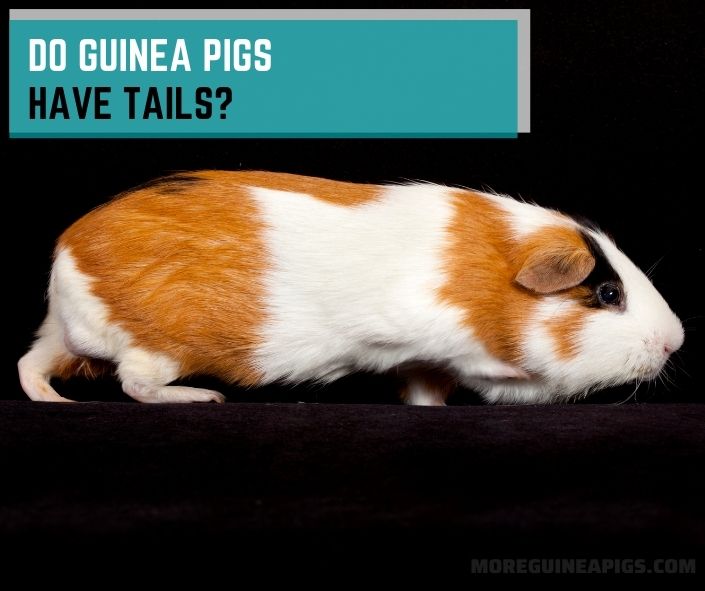Do Guinea Pigs Hibernate?
You must have heard that several rodents usually hibernate during a cold month. Guinea pigs are tropical creatures and love living at a certain temperature to stay healthy and happy.
As a beginner guinea pig owner, you may be wondering if your guinea pigs can hibernate like the other rodents.
Unlike some rodents, guinea pigs don’t hibernate during the cold months. They adapt to the cold weather by slowing down their metabolism and activity to help stay warm. However, they are at risk of hypothermia if they get too cold.
In this article, we will dive deep into whether guinea pigs can hibernate and the ways that you can keep them safe in cold weather.
Do Guinea Pigs Hibernate?
Guinea pigs cannot hibernate even if they find themselves in extreme conditions. Instead of hibernating, they usually slow down their metabolism to help stay warm in colder temperatures.
This means you will need to provide special care to your piggies during the cold weather. You will need to ensure that their habitat is warm and comfortable at all times to prevent health issues that can affect them in cold weather.
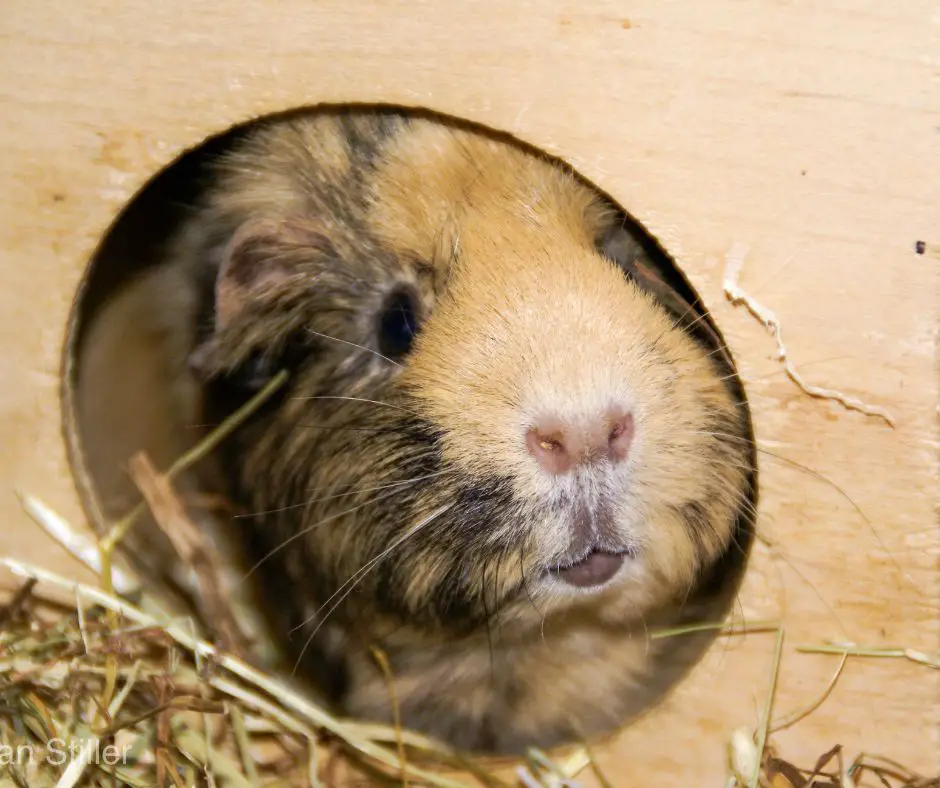
How Guinea Pig Survive in the Winter
Generally, guinea pigs don’t usually do well in cold weather. This is because they are tropical creatures as they originate from South America. They prefer warm and dry weather to help keep them happy and healthy.
During the winter, piggies don’t hibernate but become less active and sleep more to stay warm. However, guinea pigs can suffer from hypothermia that can be fatal if the temperature is too low.
Distinguish Between Hibernation and Dead Play In Guinea Pigs
Hibernation is when animals spend their winter months below ground in a den or burrow in a sleeping state. A hibernating animal lowers their body temperature by reducing the energy it uses and then slows its heart rate.
Animals that hibernate usually spend the warmer months eating as much food as possible to help store fat that they will burn during the hibernation period.
During winter, guinea pigs slow down their metabolism to conserve energy. They will appear lethargic, sluggish, and have shallow breathing.
But when they play dead, they still breathe shallowly and lay on their back as though they’re dead. They also will not respond to a stimulus when playing dead.
Also read: Is My Guinea Pig Dead or Hibernating?
What Temperature Is Safe for Guinea Pigs?
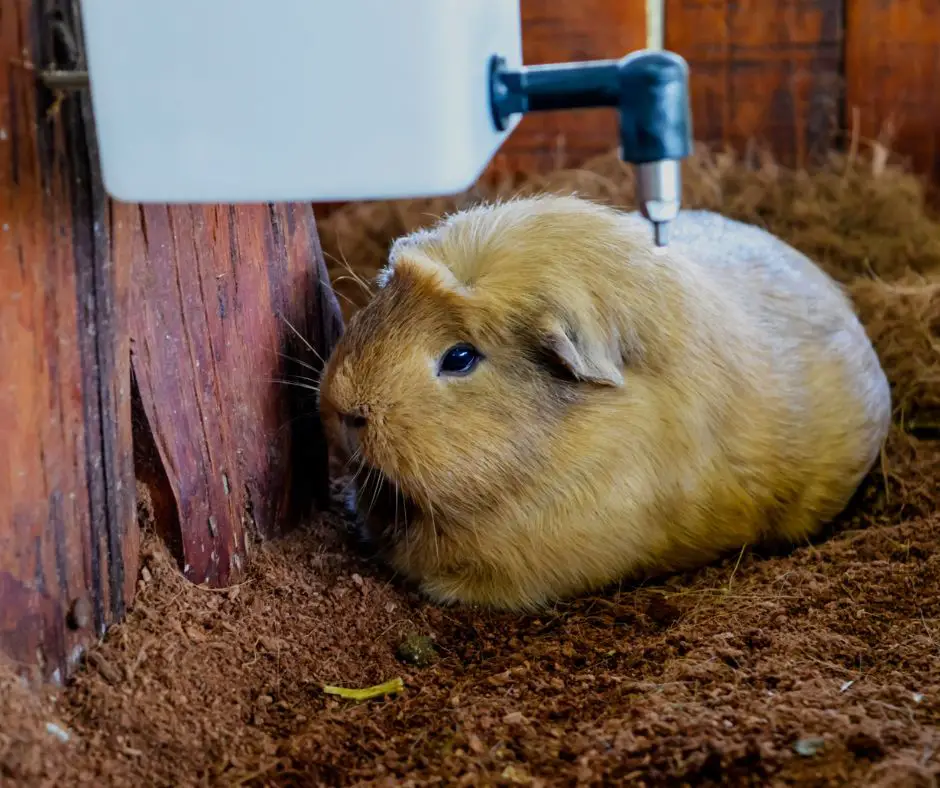
The ideal temperature suitable for guinea pigs is around 65-75oF during the day. Furthermore, they will need to be kept at a temperature higher than 60oF during the night.
They can also survive if their tank temperature is about 50oF and the air around them is dry. However, guinea pigs can suffer from cold-related issues if there is condensation around them, even at a high temperature.
How Do You Know If a Guinea Pig Is Too Cold?
Guinea pigs usually show several signs to indicate that they are too cold. Some of the signs that you should be on the lookout for are:
- Your piggie’s ears, feet, or nose will be cold to touch, and their body temperature will be too low.
- Your guinea pig shivers and huddles together.
- They act lethargic and do not look very comfortable.
- Your guinea pigs sleep too much, especially during the day. This indicates they are too cold and are conserving their energy by sleeping.
- Your guinea pigs do not have an interest in eating, playing, or drinking.
Note: as a rule of thumb, if the temperature is too cold for you, then it may be too cold for your guinea pigs.
You can use a thermometer to monitor the temperature in your guinea pig’s enclosure as any temperature drop below 60F is quite cold for your guinea pigs.
Also read: What Does It Mean When a Guinea Pig Vibrates?
Can Guinea Pigs Die Of The Cold?
Yes, guinea pigs can die of cold. Although some pets can tolerate cold, guinea pigs cannot tolerate cold, and they can freeze to death if you house them in an ill-equipped enclosure. Furthermore, extreme cold can increase the risk of illness and stress in your guinea pigs.
Simply put, guinea pigs cannot survive temperatures lower than 15⁰ C (50⁰ F). That is why during winter, they need to be kept in a warm and dry place.
Also read: What to Do When Your Guinea Pig Dies?
How To Tell If A Guinea Pig Is Dead From Cold
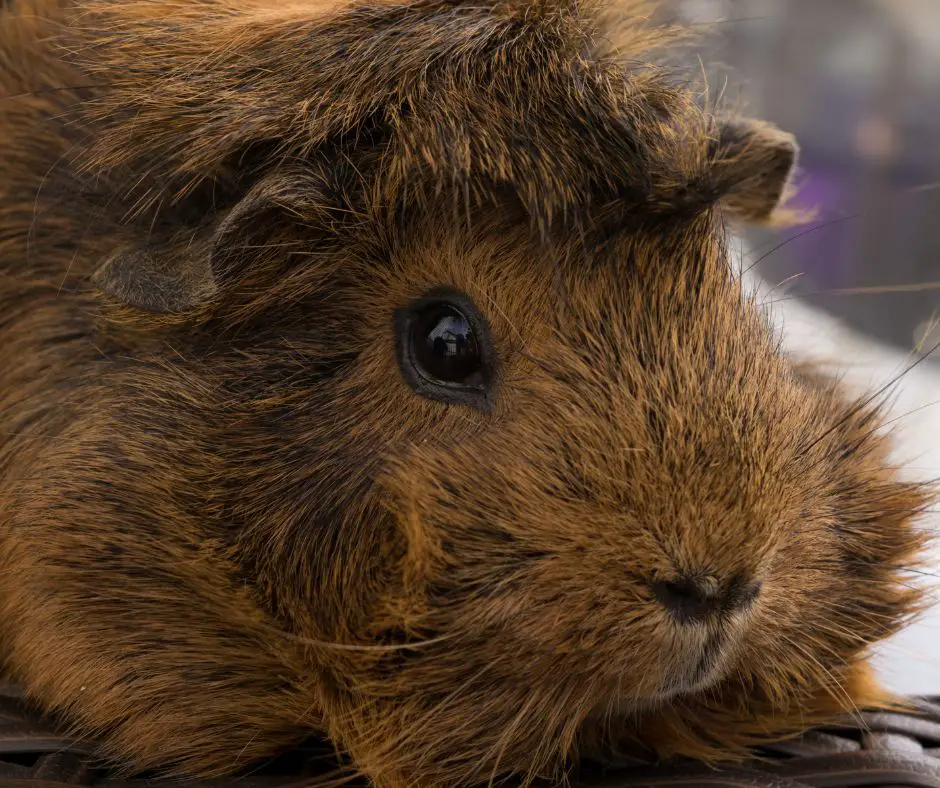
Having understood that guinea pigs will not hibernate no matter how cold the temperature gets, it’s paramount to ensure that they stay safe during this period. If your piggie gets too cold and there’s nothing to keep it warm, it might pass away.
When this happens, you can tell your guinea pig is dead from cold if its coat appears dull and rusty (not having its natural delicate, fluffy look), doesn’t make any noise or struggle, and is unresponsive to touch.
How Long Will It Take A Guinea Pig To Die?
How long it will take a guinea pig to die usually varies from one pet to another. Some guinea pigs will keel over and die in 24-36 hours after you start to notice the signs that they are cold.
Generally, guinea pigs are good at hiding their diseases to help ensure that predators don’t see them as weak and attack them. A lot of times, you will only see signs that your guinea pig is really sick when they are in the last stage of sickness.
How To Care For Your Guinea Pig In the Winter
Since guinea pigs are tropical animals, it is important that you keep them warm if you are living in areas with colder temperatures during the winter. Some of the ways to care for your guinea pigs in the winter are stated below.
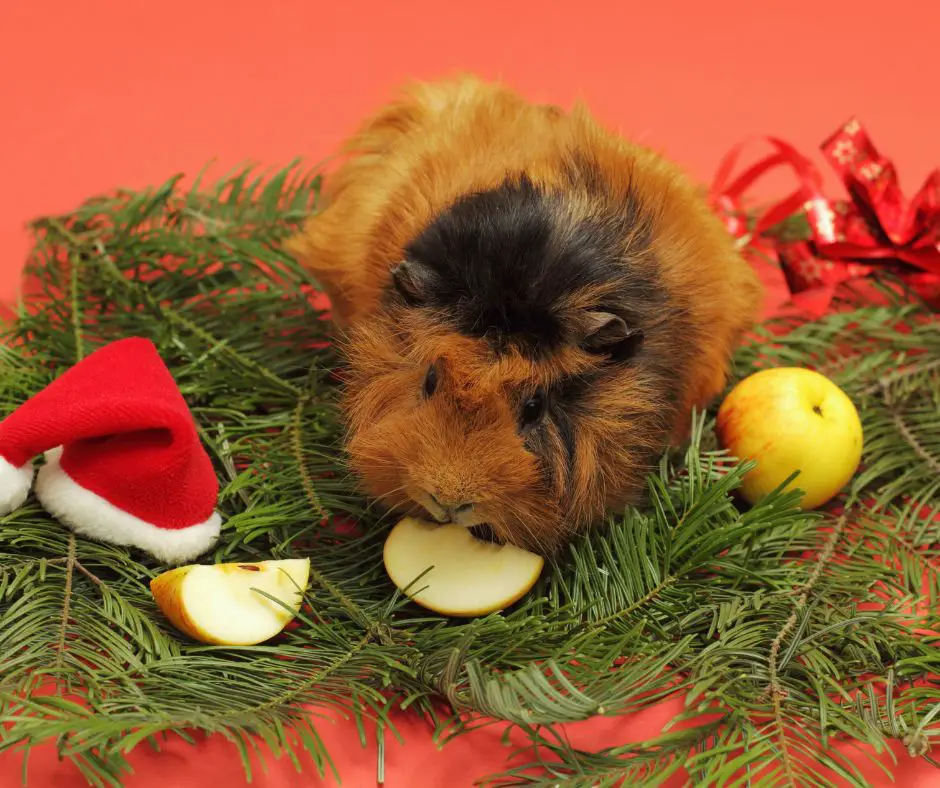
Keep Your Guinea Pig Warm Indoors
It is quite easier to house your guinea pig indoors with you. Some of the things that you will need to do when housing them indoors are:
- Ensure that you house them in a warm and insulated cage and keep them in an area protected from snow, rain, and wind.
- Try to keep their cage off the ground to keep it dry.
- Provide extra bedding where your guinea pig can snuggle for warmth when cold.
Note: you should also avoid overheating your guinea pigs during the winter months. This is because guinea pigs cannot cool their body temperature. If you overheat their cage, your guinea pigs can get heatstroke and heat exhaustion.
Ensure you provide them lots of hay for beddings, toys for stimulation and exercise, and lots of floor space to encourage movement.
Large Sleeping House Warm Fleece Hideout
Keep Your Guinea Pig Warm Outdoors
If you decide to house your guinea pig outdoors, you will need to prepare their enclosure for the harsh winter, and you will also need to ensure that their cage is safe and secure. Some of the ways to keep your guinea pig warm in an outdoor cage are stated below.
Insulate The Hutch
An affordable way to ensure that their cage is properly insulated. You can keep their cage warm by wrapping their cage in a thick blanket and placing a tarpaulin on the blanket to make it warm inside.
It is recommended that you cover their tank at night and you should not forget to put a ventilation hole.
Use Extra Bedding
Bedding is another great way to keep piggies warm and dry during the winter months. Stuffing your guinea pig’s cage with lots of beddings will help to provide a place where your guinea pig can snuggle to stay warm.
GuineaDad Liner
You can also place a hide box in their enclosure to hide when cold to stay warm.
Also read: 4 Best Guinea Pig Bedding
Use a Heating Pad
You can equip your guinea pig’s cage with heating pads to help keep them warm and comfortable. All you need is to microwave the heating pad for some seconds, then place it in their tank to keep it warm for hours. You will see as your guinea pigs lay on it to stay warm.
Note: It should be wrapped in a towel or blanket to prevent burns from prolonged contact.
During this period, ensure you feed your guinea pigs lots of calorie-enriched hay. This too will help keep them warm.
Also, you can get them special water bottles so that the water in them wouldn’t freeze quickly.
If your guinea pigs have the need to roam around during winter, ensure that the run has a shelter to protect them if it rains.
Finally, when it gets too cold (usually beyond what guinea pigs can bear), move their hutch to a safe shelter such as an unused garage, conservatory, or inside your house.
Small Animal Heating Pad
Conclusion
Unlike many rodents, guinea pigs don’t hibernate in the winter. This means you will need to provide extra care for your guinea pigs during the cold period.
Furthermore, a guinea pig’s body cannot handle too much cold and can get hypothermia that can be fatal if exposed to cold temperature for long.
